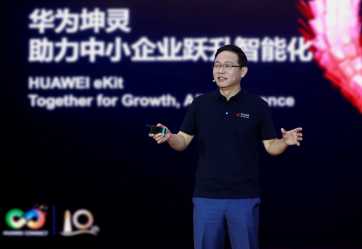While coding jobs won’t go away, many IT experts see the job transforming into more of an oversight role.

Growing use of AI coding assistants and low-code development tools appears to be driving down demand for junior developers as many companies look to cut workforce expenses.
Outlooks for software developer jobs are mixed, with the US Bureau of Labor Statistics projecting 15% growth between 2024 and 2034. But many IT experts see a softening job market for developers, particularly junior coders, with hiring freezes and layoffs on the horizon as organizations replace them with AI coding assistants.
Recent statistics support this view. The unemployment rate for recent US graduates in computer engineering stands at 7.5%, with computer science grads sitting at 6.1%, and information systems and management at 5.6%, according to projections from the US Federal Reserve Bank of New York.
Those percentages are higher than the overall US unemployment rate of 4.3% and significantly elevated compared to recent grads in nursing (1.4%), elementary education (1.8%), civil engineering (1%), and even art history (3%).
At the same time, a recent Resume.org survey of 1,000 US business leaders found that six in 10 companies are likely to lay off employees in 2026, with four in 10 planning to replace workers with AI by then. With AI coding assistants already near universally used, programmer jobs may be among the first on the chopping block.
Chirag Agrawal, a senior software engineer, sees junior developer roles disappearing as companies try to do more with less.
“Four years ago, I was that junior developer writing boilerplate CRUD code, proud of every clean PR I merged,” he says. “Today? I watch new grads struggle to land their first job, not because they’re unskilled, but because companies ask, ‘Why hire a junior for $90K when GitHub Copilot costs $10?’”
Still, Agrawal sees a future role for developers who can work with AI. The best software engineers won’t be the fastest coders, but instead, they will be those who know when to distrust AI, he says.
“At my company, my role has shifted from just coding to validating AI output, checking for edge cases, security risks, and logic gaps that AI can’t catch,” he says. “I’m not trying to out-code AI. I’m making myself essential by leading it with judgment.”
Cuts vs. productivity
There seem to be mixed responses to AI coding assistants, with some companies pushing for more productivity and others cutting jobs, adds Zeel Jadia, CEO and CTO at AI-based restaurant answering service ReachifyAI.
“Business priorities shift with economic conditions, and right now the baseline team is smaller, powered by AI-assisted developers,” he says. “Not every company is leaning in this direction, but private equity–backed groups and fast-moving incubators are already pushing the trend. Once the competitive advantage becomes too big to ignore, larger organizations will fall in line.”
Jadia predicts that hiring freezes for new developers will become common. Still, he sees a future role for developers who oversee AI-written code.
“Picture a future where AI handles the bulk of software development,” he says. “Fewer people will choose coding as a career, and those who do will command premium pay, more like lawyers today.”
This oversight will be necessary because AI still has problems with coordinating issues across multiple services, fixing security bugs, or resolving database lock scenarios, Jadia says.
“It becomes clear that you still need sharp engineers to step in and protect the house,” he adds. “At the end of the day, AI still depends on strong frameworks, high-quality documentation, and fundamental innovation to underlying technologies that AI cannot comprehend without the right technical mind guiding it.”
Senior devs needed
Other experts agree that roles for senior developers will continue to exist in the AI future. Junior developer jobs may be hard to come by, but coding jobs won’t go away, says Rachit Gupta, head of AI at AI-focused orchestration vendor Tredence.
“In the near term, it’s true that many of the tasks junior developers used to do like fixing bugs, writing test scripts, and cranking out boilerplate code, are now the kinds of things AI tools handle well,” he says. “That’s part of why new grads are having a harder time landing that first role.”
Gupta sees the developer role changing significantly in coming years.
“Instead of spending all day writing code from scratch, developers are increasingly guiding AI, stitching together outputs into larger systems, and focusing on higher-value problem-solving,” he says. “For juniors, that means the first rung on the ladder looks different; they are learning how to ask the right questions of AI, double-check its work, and put it into context.”
Senior developers will remain critical employees, he adds. “AI doesn’t make the tough calls on architecture, compliance, or security,” he says. “It can’t fully understand a company’s business logic or the ethical implications of a system. That oversight and judgment still rest with experienced engineers.”
Raymond Kok, CEO of low-code development platform Mendix, agrees, saying the senior developer role will change from writing code to ensuring that agents and other AI tools work together.
“If you think about agentic application development, people will move away from being coders to being what I call composers,” he says. “It’s about composing agents, and it’s about building workflows and hierarchies of agents, as opposed to really being focused on low-level compute instructions that you typically work on when you do programming.”
Replacing coders with technology
Still, Kok sees traditional coding dying, as AI, low-code tools, and visual programming languages reinvent the developer role. It’s past time for software development to move away from command-line coding to these graphical and AI-based methods, he says.
“Software engineering never made kind of the mainstream leap into model-based development, but it’s going to happen shortly,” Kok adds. “Most of the agentic IDEs that you see out there use visual abstractions, model-based abstractions, to build these chains of agents and to build out the agentic application experience that people want.”
IT leaders should prepare for this major change by redefining their software development lifecycles and embracing new tools, Kok advises. IT leaders also need to ensure that their employees are trained in these emerging coding techniques, he adds.
The way to define how a programmer is doing a good job will also change, he says.
“What will change is the definition of work,” Kok adds. “What people are going to be measured on going forward is, ‘How do you use properly this combination of generative AI and model-based software engineering and then implementing the right NFRs [non-functional requirements] into the application landscape that you want to go build?’”










